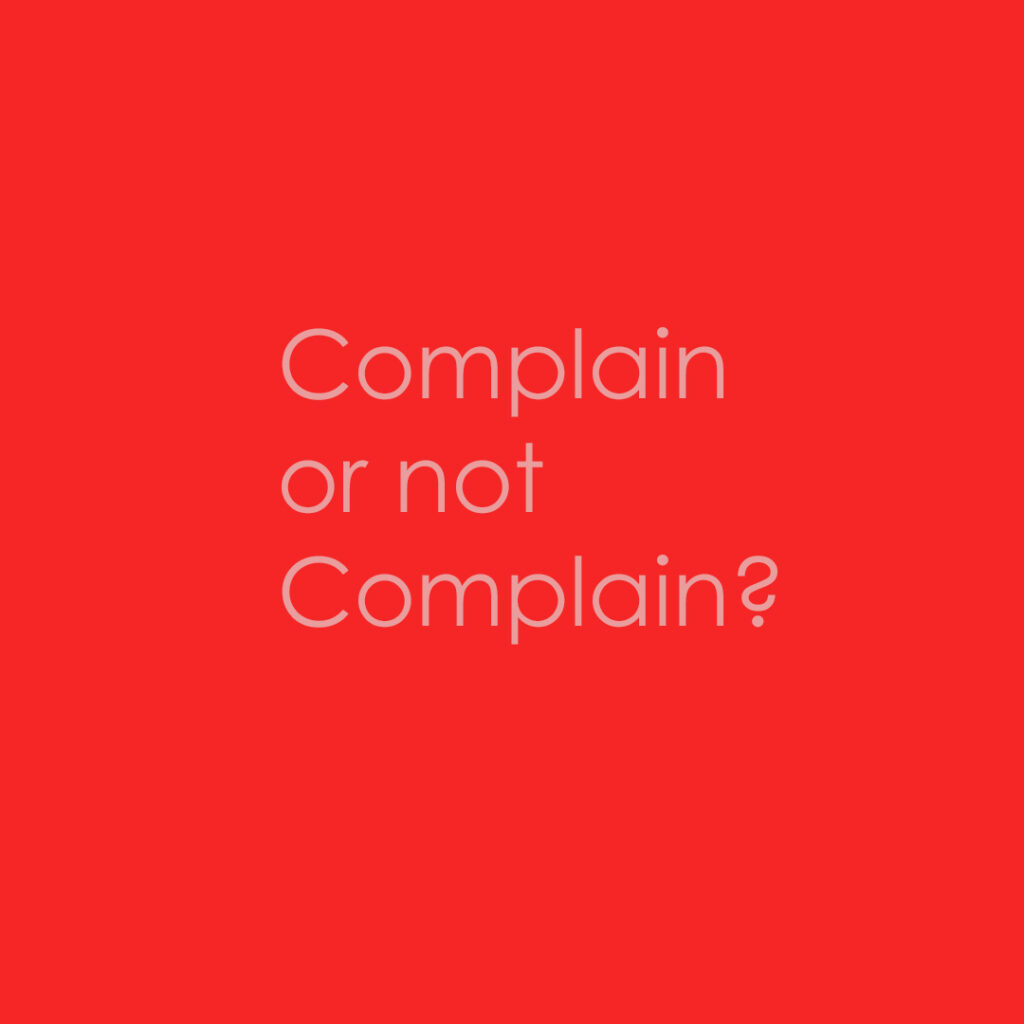
Complain or not Complain?
I have encountered many crossroads when wanting to make a complaint.
I feel like two people:
The first one thinks it will be a lot of wear and tear, both physically and mentally.
It fills out forms, makes calls in two or three different languages, and explains repeatedly. It seems to be very exhausting. In the end, I think it’s better not to do anything.
Entering the system just the idea of entering the system becomes so exhausting that there is no point in doing it. I feel anxious about entering that Kafkaesque world full of dead-end paperwork.
The second one, motivated by reading Sara Ahmed’s book, thinks that making the complaint and taking it to its ultimate consequences is exhausting but satisfying. At least I now know the system’s methods for wanting to stop me. I can already name them (nodding, circularity, blanking), which makes me able to overcome them.
Also, if no one complains, nothing will happen, but if, little by little, everyone starts complaining, things may take a different turn. The most important thing is that I know that I am not the only person in the middle of this. Unfortunately, many have suffered some violence, which perhaps has led to a complaint process. For better or worse, there are many of us, and we can help each other in the process.
Questioning the idea of complaining about how to face that big wall, that door, made me want to share it with my friends, how they had suffered some violence that they had complained about and how the institution responded to them. Also, what they perceive when they are inside the institution.
I talked to them and explained what the book I was reading was about. We set up a meeting and spoke about these types of situations. I was amazed at how the system consumes all of us, but I was even more surprised at how they continue to fight within the system. It is something that we cannot avoid, but we can accompany each other, listen to each other, be the feminist ear. And try to change the system, some from the inside and others from the outside.
“Not complaining becomes a virtue, a kind of calm patience, a positive outlook, as if waiting is what would make something fine, as if the best way to approach a wrong is to wait for it to right itself. “(Ahmed 2021: 76)
I identify with this quote from Ahmed because I have often decided not to complain, and when talking to my friends, I have realized that we are very used to enduring and staying in this “calm patience.” I think we are changing that, little by little.
The next post will be written in the first person about some experiences that some of my female friends experienced.
“In trying to get a complaint through the system, you end up taking on a role to modify the system” (Ahmed 2021: 53)
I wanto to belived that sentece of Ahmed, I want to modify the system.